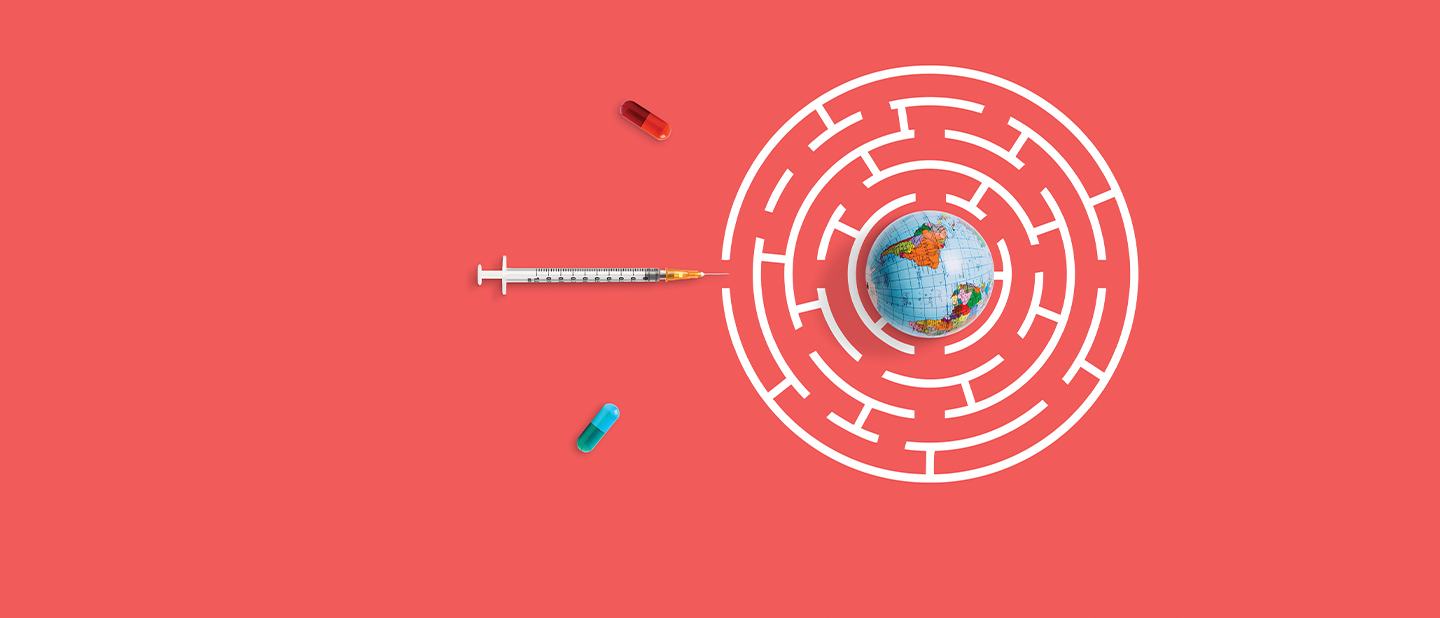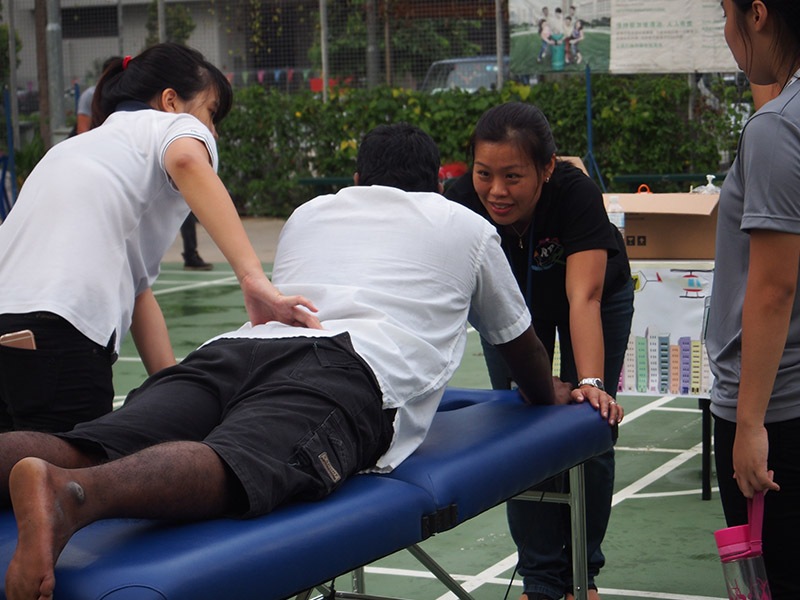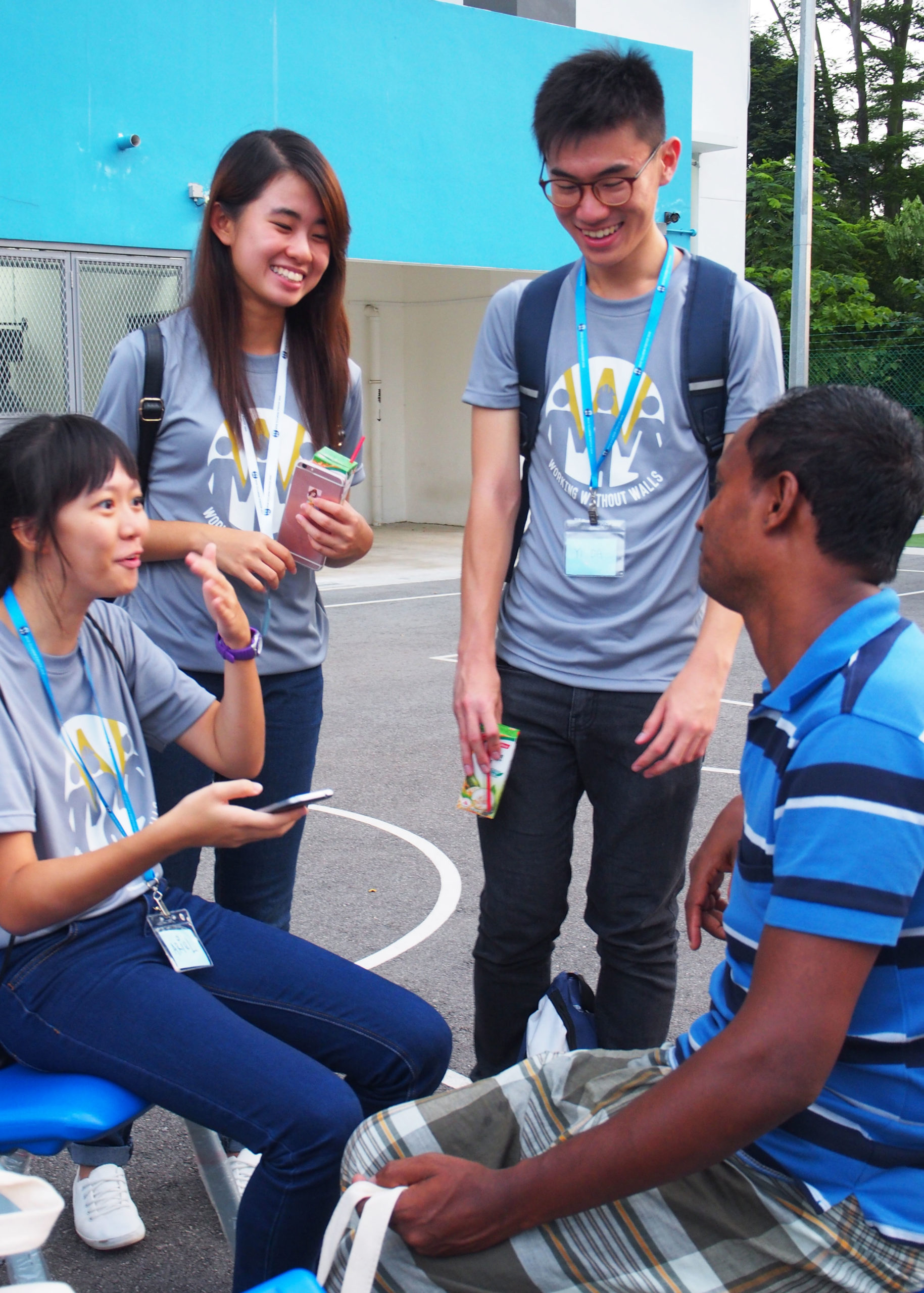Medical Students’ Outreach to Migrant Workers Talks Health and Wins Hearts

Medical students sharing BMI information with a foreign worker
Story by Joy Teo Su-Yue & Teo Jun Hao
Pictures by Charisse Loh & Tho Nian Qin
“Let us not forget those who left their homes to build ours” – these were the words which echoed in our hearts as we began our journey in the Freshmen Orientation Camp Community Involvement Project (FOCCIP) 2016. An annual event organised by the NUS Yong Loo Lin School of Medicine, FOCCIP is a programme that starts incoming medical freshmen off on their formative years by serving the community and helping them to gain a heart for service and people. It also helps to facilitate bonding among medical students and introduces the hard and soft skills required for the profession. This year, we were inspired to serve a relatively unreached group of people; a group that toils away at construction sites, shipyards and on our roads. They are the migrant workers, the ‘faceless’ people who do so much to keep Singapore humming, clean and green.
FOCCIP 2016 saw 377 volunteers from Phase I and Phase II reaching out to at least 585 migrant workers at the Woodlands and Mandai Westlite dormitories over two nights. On July 12 and 14, migrant workers from both dormitories streamed back to their quarters after a long day at work. They were surprised to see
our students welcome them with warm smiles and a meaningful programme of activities planned for them. Our student volunteers accompanied them around the five health booths that were set up, namely Blood Pressure, Body Mass Index (BMI), First Aid, Physiotherapy and Eye Care. At each booth, our volunteers conducted basic screening for the migrant workers and gave customised health advice to the individual, based on his screening results.
The Blood Pressure station was popular among the migrant workers as they were keen to find out their current pressure readings. It is a common misconception that their blood pressure readings would be normal as they work in physically demanding positions. However, it was later discovered that a primary source of unhealthy blood pressure readings was their unhealthy diets where there was a high intake of salt, oil, sugary beverages and energy drinks. Our volunteers offered tips on how to cope with high blood pressure, including diet and lifestyle changes.
Migrant workers with high BMI were also educated on the possible health risks which they may face and how they can reduce such risks through exercise and healthier diets. At the First Aid station, our volunteers shared with the migrant workers on the correct way to tie an arm sling and wrist bandage, proper wound care techniques as well as hand and eye washing techniques.

A physiotherapy session conducted by Nanyang Polytechnic students and alumni
We were also privileged to have enthusiastic and knowledgeable physiotherapy students and alumni from Nanyang Polytechnic joining us at the Physiotherapy station. With their help, our migrant guests had the opportunity to seek advice for any workrelated pain or discomfort, while learning exercises and stretches to help alleviate the pain.
After completing the health checks, some of our student volunteers sat to talk with some of the workers, while others set off for a game of basketball, soccer, cricket and even limbo. Through such simple interaction, we aimed to break down the walls that exist between us, and hoped that our medical students would be able to see our migrant brothers for the fathers, sons and brothers that they are.
We began this journey of planning for FOCCIP with a simple idea in mind – bring healthcare to the minority group of people who were so often neglected while instilling empathy and cultural awareness in our medical students. Planning and executing such an event on such a massive scale was by no means an easy feat. From securing sponsorships to planning operational flow to the exact minute, the FOCCIP committee
spent many sleepless nights working tirelessly to ensure the success of the event, and that any and all possible contingencies were pre-empted and planned for.
Standing in the dormitory grounds on both nights, watching as the migrant workers streamed in excitedly to our event and seeing just how willing they were to open their hearts and share their lives and stories with us, made us feel that the past eight months of hard work had indeed not gone to waste. While we set out to share about healthcare and education with them, we were touched so much more by their devotion and dedication to their families back home.
Moving forward, our project hopes to not only continue breaking down the barriers between migrant workers and medical students, but also explore areas in which we can effect greater and more sustainable change – perhaps through infectious disease screenings or vaccination programmes.
We would like to thank our project mentor, Dr Tan Lai Yong, for his kind advice and guidance every step of the way, our sponsors and partners for their generous and enthusiastic support, and all our volunteers, committee members and friends who committed their time and effort for FOCCIP 2016.
I say – student observations
“I think it’s been very meaningful and interesting seeing the migrant workers coming in with their stories and telling the medical students about it. One of the migrant workers even put his arm around a (male) volunteer and they were just talking like they were very close friends; like brothers.”
– Ong Wei Xin, Phase II, FOCCIP Committee Member.
“Previously when we interacted with migrant workers, we don’t really know them so this creates hesitation or inertia that stops us from talking to them, but from this experience today I realised that a lot of them are actually very nice people and they are really just like us, and some of them are really willing and open to come up to us.”
– Jasmine Chua, Phase I volunteer.
“I learnt a lot about sacrifice because (coming all the way to Singapore just to work for their families) is very noble and I think we often overlook the sacrifices these people make.”
– Lemuel Lok, Phase II volunteer.

Getting to know you – students talk health with a foreign worker
